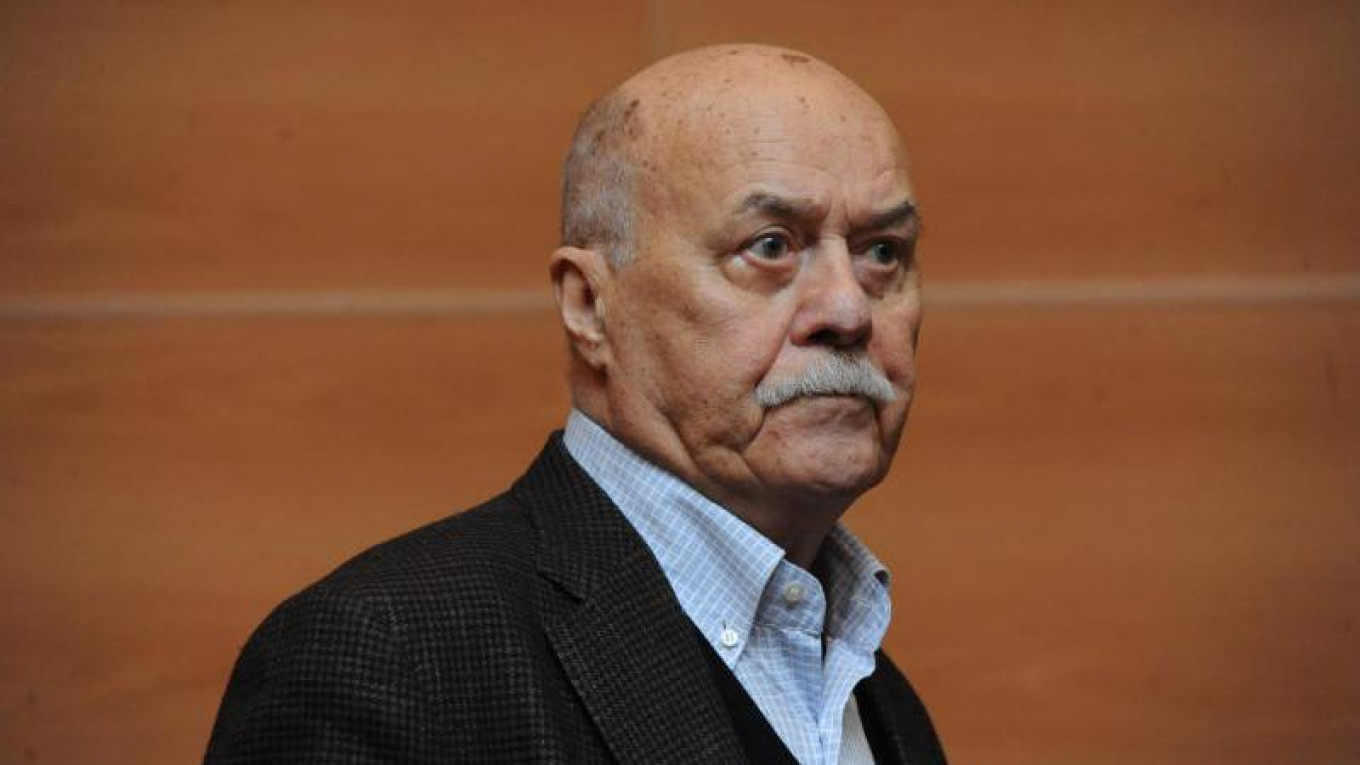Stanislav Govorukhin, filmmaker and head of the State Duma's Culture Committee, has proposed stiffer penalties for acts of vandalism against works of art. Govorukhin's new initiative is in response to activists' demands to close a photo exhibition by Jock Sturges in Moscow's Lumiere Brothers Photography Center.
If accepted, the law would expand Article 214 of the Criminal Code, which covers vandalism, adding an item for "desecration, damaging, or destruction of works of art." If there is "significant damage," a convicted vandal can face fines of up to 1 million rubles ($15,500), a year of community service, and up to two years imprisonment.
The director also wanted to add an article on "the public desecration of works of literature, art or folk art." To punish such acts he proposed a fine of up to 100,000 rubles, compulsory work for a period of up to 120 hours, or detention for 15 days. For repeated offenses, there would be a fine of up to 500,000 rubles, compulsory work up to 200 hours, or arrest.
Govorukhin explained the reasoning behind his proposal in an interview with the Open Russia organization.
"We all know about the current acts of vandalism, they are heard everywhere — in newspapers, on television. They destroyed that exhibition, that play was interrupted, then a photograph was doused with urine," Govorukhin said.
"Vandalism in our country has increased simply because people have become freer. Previously, no one dared to throw water on something at an exhibition. Though there were, for example, cases of assault with a knife on some famous painting. But this doesn't happen only in our country. We may recall the attempt on the Mona Lisa. Now it hangs behind protective glass. For what? To protect it from vandals.''
A Message from The Moscow Times:
Dear readers,
We are facing unprecedented challenges. Russia's Prosecutor General's Office has designated The Moscow Times as an "undesirable" organization, criminalizing our work and putting our staff at risk of prosecution. This follows our earlier unjust labeling as a "foreign agent."
These actions are direct attempts to silence independent journalism in Russia. The authorities claim our work "discredits the decisions of the Russian leadership." We see things differently: we strive to provide accurate, unbiased reporting on Russia.
We, the journalists of The Moscow Times, refuse to be silenced. But to continue our work, we need your help.
Your support, no matter how small, makes a world of difference. If you can, please support us monthly starting from just $2. It's quick to set up, and every contribution makes a significant impact.
By supporting The Moscow Times, you're defending open, independent journalism in the face of repression. Thank you for standing with us.
Remind me later.





